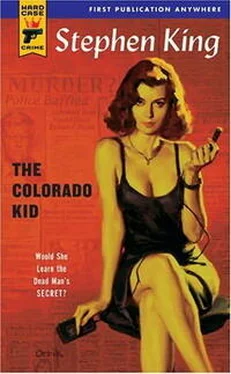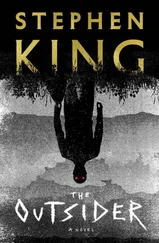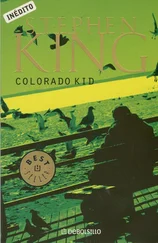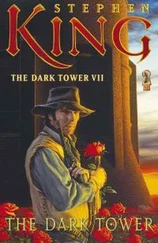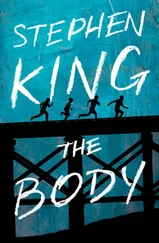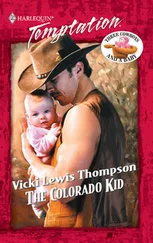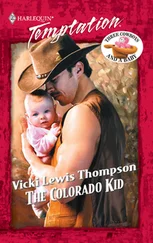“George Wournos, meanwhile,” Vince said, “called Doc Robinson, over on Beach Lane.” He paused, smiling remembrance. Or maybe just for effect. “Then he called me.”
“A murder victim shows up on the island’s only public beach and the local law calls the editor of the local newspaper?” Stephanie asked. “Boy, that reallyisn’t likeMurder, She Wrote.”
“Life on the Maine coast is rarely likeMurder, She Wrote,” Dave said in his driest tone, “and back then we were pretty much what we are now, Steffi, especially when the summer folk are gone and it’s just us chickens—all in it together. That doesn’t make it anything romantic, just a kind of…I dunno, call it a sunshine policy. If everyone knows what there is to know, it stops a lot of tongues from a lot of useless wagging. And murder! Law! You’re a little bit ahead of yourself there, ain’tcha?”
“Let her off the hook on that one,” Vince said. “We put the idea in her head ourselves, talkin about the coffee poisonins over in Tashmore. Steffi, Chris Robinson delivered two of my children. My second wife—Arlette, who I married six years after Joanne died—was good friends with the Robinson family, even dated Chris’s brother, Henry, when they were in school together. It was the way Dave says, but it was more than business.”
He put his glass of soda (which he called “dope”) on the railing and then spread his hands open to either side of his face in a gesture she found both charming and disarming.I will hide nothing, it said. “We’re a clubby bunch out here. It’s always been that way, and I think it always will be, because we’ll never grow much bigger than we are now.”
“ThankGod,” Dave growled. “No friggin WalMart. Excuse me, Steffi.”
She smiled and told him he was excused.
“In any case,” Vince said, “I want you to take that idea of murder and set it aside, Steffi. Will you do that?”
“Yes.”
“I think you’ll find that, in the end, you can’t take it off the table or put it all the way back on. That’s the way it is with so many things about the Colorado Kid, and what makes it wrong for the BostonGlobe. Not to mentionYankee andDowneast andCoast. It wasn’t even right forThe Weekly Islander, not really. Wereported it, oh yes, because we’re a newspaper and reporting is our job—I’ve got Ellen Dunwoodie and the fire hydrant to worry about, not to mention the little Lester boy going to Boston for a kidney transplant—if he lasts long enough, that is—and of course you need to tell folks about the EndOfSummer Hayride and Dance out at Gernerd Farms, don’tcha?”
“Don’t forget the picnic,” Stephanie murmured. “It’s all the pie you can eat, and folks will want to know that.”
The two men laughed. Dave actually patted his chest with his hands to show she had “gotten off a good one,” as island folk put it.
“Ayuh, dear!” Vince agreed, still smiling. “But sometimes a thing happens, like two high school kids on their mornin run finding a dead body on the town’s prettiest beach, and you say to yourself, ‘There must be astory in that.’ Not just reporting—what, why, when, where, and how, but astory — and then you discover there justisn’t. That it’s only a bunch of unconnected facts surrounding atrue unexplained mystery. And that, dear, is what folks don’t want. It upsets em. It’s too many waves. It makes em seasick.”
“Amen,” Dave said. “Now why don’t you tell the rest of it, while we’ve still got some sunshine?”
And Vince Teague did.
“We were in on it almost from the beginning—and bywe I mean Dave and me,The Weekly Islander — although I didn’t print what I was asked by George Wournos not to print. I had no problem with that, because there was nothing in that business that seemed to affect the island’s welfare in any way. That’s the sort of judgment call newspaper folk make all the time, Steffi—you’ll make it yourself—and in time you get used to it. You just want to make sure you never get comfortable with it.
“The kids went back and guarded the body, not that there was a lot of guardin to be done; before George and Doc Robinson pulled up, they didn’t see but four cars, all headed for town, and none of em slowed down when they saw a couple of teenagers joggin in place or doin stretchin exercises there by the little Hammock Beach parkin lot.
“When George and the Doc got there, they sent Johnny and Nancy on their way, and that’s where they leave the story. Still curious, the way people are, but on the whole glad to go, I have no doubt. George parked his Ford in the lot, Doc grabbed his bag, and they walked out to where the man was sitting against that litter barrel. He had slumped a little to one side again, and the first thing the Doc did was to haul him up nice and straight.
“ ‘Is he dead, Doc?’ George said.
“ ‘Oh gorry, he’s been dead at least four hours and probably six or more,’ Doc says. (It was right about then that I came pulling in and parked my Chevy beside George’s Ford.) ‘He’s as stiff as a board.Rigor mortis. ’
“ ‘So you think he’s been here since…what? Midnight?’ George asks.
“ ‘He coulda been here since last Labor Day, for all I know,’ Doc says, ‘but the only thing I’m absolutelysure of is that he’s been dead since two this morning. Because of therigor.Probably he’s been dead since midnight, but I’m no expert in stuff like that. If the wind was coming in stiff from offshore, that could have changed when therigor set in—’
“ ‘No wind at all last night,’ I says, joining them. ‘Calm as the inside of a churchbell.’
“ ‘Well lookit here, another damn country heard from,’ says Doc Robinson. ‘Maybe you’d like to pronounce the time of death yourself, Jimmy Olson.’
“ ‘No,’ I says, ‘I’ll leave that to you.’
“ ‘I think I’ll leave it to the County Medical Examiner,’ he says. ‘Cathcart, over in Tinnock. The state pays him an extra eleven grand a year for educated guttossin. Not enough, in my humble opinion, but each to his own. I’m just a GP. But…ayuh, this fella was dead by two, I’ll say that much. Dead by the time the moon went down.’
“Then for maybe a minute the three of us just stood there, looking down on him like mourners. A minute can be an awful short space of time under some circumstances, but it can be an awful long one at a time like that. I remember the sound of the wind—still light, but starting to build in a little from the east. When it comes that way and you’re on the mainland side of the island, it makes such a lonely sound—”
“I know,” Stephanie said quietly. “It kind of hoots.”
They nodded. That in the winter it was sometimes a terrible sound, almost the cry of a bereft woman, was a thing she did not know, and there was no reason to tell her.
“At last—I think it was just for something to say—George asked Doc to take a guess as to how old the fella might be.
“ ‘I’d put him right around forty, give or take five years,’ he says. ‘Do you think so, Vincent?’ And I nodded. Forty seemed about right, and it occurred to me that it’s too bad for a fella to die at forty, a real shame. It’s a man’s most anonymous age.
“Then the Doc seen something that interested him. He went down on one knee (which wasn’t easy for a man of his size, he had to’ve gone twoeighty and didn’t stand but fivefootten or so) and picked up the dead man’s right hand, the one that’d been lying on the beach. The fingers were curled a little, as if he’d died trying to make them into a tube he could look through. When Doc held the hand up, we could see some grit stuck to the insides of the fingers and a little more dusted on the palm.
Читать дальше
